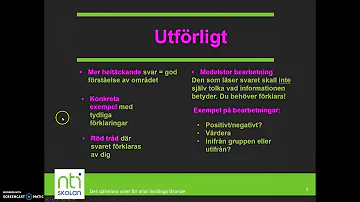What are the 5 emergent literacy skills?
Innehållsförteckning
- What are the 5 emergent literacy skills?
- What are the 3 components of emergent literacy?
- How would you define emergent literacy?
- What are examples of emergent literature?
- What are the 4 stages of reading development?
- How do you develop emergent literacy skills?
- What are the four factors that determine emergent reading?
- What are the 5 stages of oral language development?
- Why does emergent literacy matter?
- How do you develop emergent literacy?
- What is emergent literacy instruction?
- Why measure children's emergent literacy?
- Is emergent literacy different in the United States and in England?
- Does emergent literacy and emergent numeracy increase with age?

What are the 5 emergent literacy skills?
As a child grows older and demonstrates the key stages of literacy development they will improve their reading and writing ability. The five stages of literacy development include emergent literacy, alphabetic fluency, words and patterns, intermediate reading, and advanced reading.
What are the 3 components of emergent literacy?
The three components are (a) Word Identification, (b) Listening Comprehension, and (c) Silent Reading Comprehension. Each component consists of specific skills that emergent readers must learn and understand before they can acquire conventional literacy.
How would you define emergent literacy?
Emergent Literacy: Early Reading and Writing Development During early speech and language development, children learn skills that are important to the development of literacy (reading and writing). This stage, known as emergent literacy, begins at birth and continues through the preschool years.
What are examples of emergent literature?
Examples of emergent literacy activities include engaging in shared storybook reading, pretending to write or draw, incorporating literacy themes into play, and engaging in oral wordplay such as rhyming. Shared storybook reading is arguably the most common emergent literacy activity for many children.
What are the 4 stages of reading development?
4 Stages of Development For Learning to Read
- Emergent Reader. Emergent readers are children who are just “stepping into” the world of reading. ...
- Early Reader. ...
- Transitional Reader. ...
- Fluent Reader. ...
- To save this article for later pin the image below:
How do you develop emergent literacy skills?
- Establish predictable routines to encourage children to learn to anticipate events.
- Provide concrete language-embedded experiences.
- Create a communication-rich environment with meaningful activities in the natural context.
- Read aloud!
- Expose the child to reading and writing within the daily routine.
What are the four factors that determine emergent reading?
Based on the literature, the main components of emergent reading include vocabulary knowledge, decontextualized language skills, conventions of print, knowledge of letters, linguistic awareness, and phoneme-grapheme correspondence.
What are the 5 stages of oral language development?
Students learning a second language move through five predictable stages: Preproduction, Early Production, Speech Emergence, Intermediate Fluency, and Advanced Fluency (Krashen & Terrell, 1983).
Why does emergent literacy matter?
Fostering early literacy habits in children is something parents can start early and within their own home. Supporting emergent literacy means helping children develop a rich vocabulary, self-expression, and reading comprehension—tools they need to become successful readers and lifelong learners.
How do you develop emergent literacy?
- Establish predictable routines to encourage children to learn to anticipate events.
- Provide concrete language-embedded experiences.
- Create a communication-rich environment with meaningful activities in the natural context.
- Read aloud!
- Expose the child to reading and writing within the daily routine.
What is emergent literacy instruction?
- Emergent literacy instruction is most beneficial when it begins early in the preschool period because these difficulties are persistent and often affect children's further language and literacy learning throughout the school years. Promoting literacy development, however, is not confined to young children.
Why measure children's emergent literacy?
- Measuring children’s emergent literacy skills can provide important information about where policy makers, teachers and parents could focus attention and resources in order to promote positive and equitable early literacy development and, in turn, improve children’s life chances.
Is emergent literacy different in the United States and in England?
- Children in England and Estonia had similar average scores for emergent literacy, which were higher than those in the United States. Children in England, however, had higher average scores for emergent numeracy than children in Estonia, which were in turn higher than those of children in the United States.
Does emergent literacy and emergent numeracy increase with age?
- Children’s emergent literacy and emergent numeracy increase with age Children develop and learn quickly during their early years. The differences in scores by age give an estimate of expected learning progressions.















